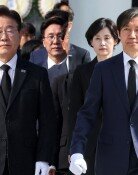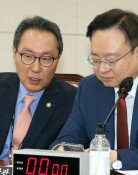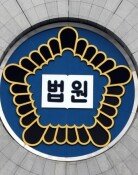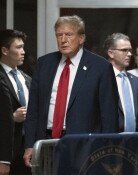Company-run Schools Leading Educational Reform
Company-run Schools Leading Educational Reform
Posted July. 23, 2009 08:47,
Company-operated schools are transforming domestic education in a sector infamous for resistance to change.
Certain schools in Seoul, where academic competition is more intense, have changed traditional practices in setting the stage for transformation. Analysts say the entrepreneurial spirit of challenge is being incorporated into school management and prompting change.
A case in point is Boin High School in Seouls Ogeum district. The former vocational school was made into a regular one in 2007, and then into a self-regulated private school designed by the government.
This type of school charges higher tuition but has a freer curriculum management than a regular high school. The transition was conditional after a one-year grace period, but the schools transformation has come just three years after its transition into an academic high school.
Behind Boins transformation is school board chairman Kim Seok-han, 54, who heads the artificial leather maker Insung Hitech. A Boin alumnus who attended the school when it was a vocational institution, Kim has invested 10 billion won into the school since taking it over in 2005.
Aggressive investment has played a critical role in the schools transition, he said, adding, If competition further heats up between schools to ensure educational competitiveness, company-managed schools will stand out all the more.
Hana School, established by Hana Financial Group, has also won attention. Set to open next year, Hana is the only self-regulated private high school in the Seoul region.
There are six self-regulated private high schools nationwide, including Sangsan High School in Jeonju and Korean Minjok Leadership Academy in Gangwon Province. Among these, several have expressed their intent to give up the status citing managerial difficulty.
The financial group has expressed strong confidence in school management, focusing efforts on finding a strong management team. Former Korea University professor Kim Jin-seong is the principal and former Seoul National University President Chung Un-chan heads the schools foundation.
Hana School will introduce an advanced placement program for college courses and foreign language training, and will offer classes in economics and finance subjects in English using English textbooks.
Mirim Girls Information Science High School, operated by Lotte Tour, was selected this year as a meister high school, a system introduced following the inauguration of the Lee Myung-bak administration.
A meister school is designed to foster technology students, and Seoul has only two of the schools. Mirim Principal Jang Byeong-gap said, Changing a school requires huge costs, adding, It would be very difficult for a regular educational foundation to make such an (investment) decision.
Daedong Commercial High School, which has been operated by domestic pharmaceutical giant Chong Kun Dang, has been changed into Daedong Tax High School since 2007. The specialized high school was selected by the Seoul Metropolitan Office of Education through a review of curricula and financial soundness of its foundation.
Daedong, the first in the country to be made a specialized high school, has seen its academic performance ratio for middle school required for admission increase from 54.3 percent to 35.9 percent (in percentile ranking).
Three other schools in Seouls southern Gangnam district also have high aspirations after being turned into self-regulated private schools: Joongdong High School run by the Samsung Foundation in Daechi-dong; Hyundai High School run by the Hyundai Foundation in Apgujeong-dong; and Sehwa High School run by Taekwang Industrial in Banpo-dong.
kky@donga.com
Headline News
- Israel prepares for retaliation against Iran
- Samsung reclaims top spot, surpassing Apple in smartphone market
- 77% of Koreans in 20s and 30s are 'Kangaroo Tribe' due to job crisis
- KBO referees embroiled in controversy over ABS decision concealment
- Inflation, oil price surge put double shock on global economy







